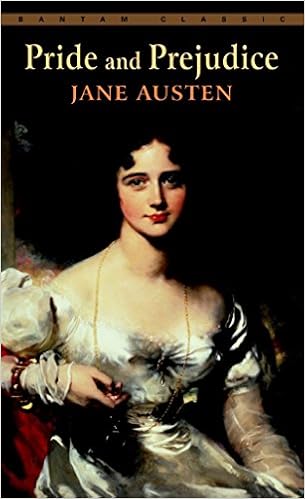
Description
"As nearly flawless as any fiction could be."—Eudora Welty From the Inside Flap Published in 1811, Sense and Sensibility has delighted generations of readers with its masterfully crafted portrait of two sisters, Elinor and Marianne Dashwood. Forced to leave their home after their father's death, Elinor and Marianne must rely on making good marriages as their means of support. But unscrupulous cads, meddlesome matriarchs, and various guileless and artful women impinge on their chances for love and happiness. The novelist Elizabeth Bowen wrote, "The technique of [Jane Austen's novels] is beyond praise....Her mastery of the art she chose, or that chose her, is complete."This Modern Library Paperback Classics edition contains a new Introduction by Pulitzer Prize finalist David Gates, in addition to new explanatory notes. From the Trade Paperback edition. Published in 1811, Sense and Sensibility has delighted generations of readers with its masterfully crafted portrait of two sisters, Elinor and Marianne Dashwood. Forced to leave their home after their father's death, Elinor and Marianne must rely on making good marriages as their means of support. But unscrupulous cads, meddlesome matriarchs, and various guileless and artful women impinge on their chances for love and happiness. The novelist Elizabeth Bowen wrote, "The technique of [Jane Austen's novels] is beyond praise....Her mastery of the art she chose, or that chose her, is complete." This Modern Library Paperback Classics edition contains a new Introduction by Pulitzer Prize finalist David Gates, in addition to new explanatory notes. "From the Trade Paperback edition. Though the domain of Jane Austen’s novels was as circumscribed as her life, her caustic wit and keen observation made her the equal of the greatest novelists in any language. Born the seventh child of the rector of Steventon, Hampshire, on December 16, 1775, she was educated mainly at home. At an early age she began writing sketches and satires of popular novels for her family’s entertainment. As a clergyman’s daughter from a well-connected family, she had an ample opportunity to study the habits of the middle class, the gentry, and the aristocracy. At twenty-one, she began a novel called “The First Impressions” an early version of Pride and Prejudice . In 1801, on her father’s retirement, the family moved to the fashionable resort of Bath. Two years later she sold the first version of Northanger Abby to a London publisher, but the first of her novels to appear was Sense and Sensibility , published at her own expense in 1811. It was followed by Pride and Prejudice (1813), Mansfield Park (1814), and Emma (1815).After her father died in 1805, the family first moved to Southampton then to Chawton Cottage in Hampshire. Despite this relative retirement, Jane Austen was still in touch with a wider world, mainly through her brothers; one had become a very rich country gentleman, another a London banker, and two were naval officers. Though her many novels were published anonymously, she had many early and devoted readers, among them the Prince Regent and Sir Walter Scott. In 1816, in declining health, Austen wrote Persuasion and revised Northanger Abby , Her last work, Sandition , was left unfinished at her death on July 18, 1817. She was buried in Winchester Cathedral. Austen’s identity as an author was announced to the world posthumously by her brother Henry, who supervised the publication of Northanger Abby and Persuasion in 1818. Excerpt. © Reprinted by permission. All rights reserved. Sense and Sensibility, the first of those metaphorical bits of "ivory" on which Jane Austen said she worked with "so fine a brush," jackhammers away at the idea that to conjecture is a vain and hopeless reflex of the mind. But I'll venture this much: If she'd done nothing else, we'd still be in awe of her. Wuthering Heights alone put Emily Brontë in the pantheon, and her sister Charlotte and their older contemporary Mary Shelley might as well have saved themselves the trouble of writing anything but Jane Eyre and Frankenstein . Sense and Sensibility , published in 1811, is at least as mighty a work as any of these, and smarter than all three put together. And it would surely impress us even more without Pride and Prejudice (1813), Mansfield Park (1814), and Emma (1815) towering just up ahead. Austen wrote its ur-version, Elinor and Marianne , when she was nineteen, a year before First Impressions , which became Pride and Prejudice ; she reconceived it as Sense and Sensibility when she was twenty-two, and she was thirty-six when it finally appeared. Like most first novels, it lays out what will be its author's lasting preoccupations: the "three or four families in a country village" (which Austen told her niece, in an often-quoted letter, was "the very thing to work on"). The interlocking anxieties over marriages, estates, and ecclesiastical "livings." The secrets, deceptions, and self-deceptions that take several hundred pages to straighten out-to the extent that they get straightened out. The radical skepticism about human knowledge, human communication, and human possibility that informs almost every scene right up to the sort-of-happy ending. And the distinctive characters-the negligent or overindulgent parents, the bifurcating siblings (smart sister, beautiful sister; serious brother, coxcomb brother), the charming, corrupted young libertines. Unlike most first novels, though, Sense and Sensibility doesn't need our indulgence. It's good to go.In the novels to come, Elinor Dashwood will morph into Anne Elliott and Elizabeth Bennet (who will morph into Emma Woodhouse); Edward Ferrars into Edmund Bertram, Mr. Knightley, Henry Tilney, and Captain Wentworth; Willoughby into George Wickham and Henry Crawford. But the characters in Sense and Sensibility stand convincingly on their own, every bit as memorable as their later avatars. If Austen doesn't have quite the Caliban-to-Ariel range of a Shakespeare, she can still conjure up and sympathize with both Mrs. Jennings-the "rather vulgar" busybody with a borderline-unwholesome interest in young people's love lives, fits of refreshing horse sense, and a ruggedly good heart-and Marianne Dashwood, a wittily observed case study in Romanticism, a compassionately observed case study in sublimated adolescent sexuality, and a humorously observed case study in humorlessness. "I should hardly call her a lively girl," Elinor observes to Edward, "-she is very earnest, very eager in all she does-sometimes talks a great deal and always with animation-but she is not often really merry." Humorlessness, in fact, may be the one thing Marianne and her eventual lifemate, Colonel Brandon, have in common. (Sorry to give that plot point away; it won't be the last one, either. So, fair warning.) The minor characters have the sort of eidetic specificity you associate with Dickens: from the gruesomely mismatched Mr. and Mrs. Palmer to Robert Ferrars, splendidly impenetrable in his microcephalic self-complacency. The major characters, on the other hand, refuse to stay narrowly "in character"; they're always recognizably themselves, yet they seem as many-sided and changeable as people out in the nonfictional world.Elinor makes as ambivalent a heroine as Mansfield Park's notoriously hard-to-warm-up-to Fanny Price. She's affectionately protective of her sister Marianne yet overfond of zinging her: "It is not every one who has your passion for dead leaves." She's bemused at Marianne's self-dramatizing, yet she's as smug about suffering in silence as Marianne (who "would have thought herself very inexcusable" if she were able to sleep after Willoughby leaves Devonshire) is proud of suffering in Surround Sound. She can be treacherously clever, as when Lucy Steele speculates (correctly) that she may have offended Elinor by staking her claim to Edward: " 'Offended me! How could you suppose so? Believe me,' and Elinor spoke it with the truest sincerity, 'nothing could be farther from my intention, than to give you such an idea.' " Yet she can also be ponderously preachy: "One observation may, I think, be fairly drawn from the whole of the story-that all Willoughby's difficulties, have arisen from the first offense against virtue, in his behaviour to Eliza Williams. That crime has been the origin of every lesser one, and of all his present discontents." (In the rest of Austen, only the intentionally preposterous Mary in Pride and Prejudice strikes just this note: "Unhappy as the event may be for Lydia, we may draw from it this useful lesson; that loss of virtue in a female is irretrievable . . ."). Is Elinor simply an intelligent young woman overtaxed by having to be the grown-up of the family? Or is she an unconsciously rivalrous sibling, sick of hearing that her younger, more beautiful sister will marry more advantageously? Or both? Or what? It's not that Austen doesn't have a clear conception of her-it's that she doesn't have a simple conception. Elinor is the character you know the most about, since Austen tells most of the story from her point of view, and consequently she's the one you're least able to nail with a couple of adjectives or a single defining moment.Edward bothers us, too. He's a dreamboat only for a woman of Elinor's limited expectations: independent-minded yet passive and depressive, forthright and honorable yet engaged in a book-long cover-up. (It's a tour de force on Austen's part to present a character so burdened with a secret that we see his natural behavior only long after we've gotten used to him.) At his strongest and most appealing-to Elinor, at least-he's a clear-your-mind-of-cant kind of guy: "I am not fond of nettles, or thistles, or heath blossoms. . . . A troop of tidy, happy villagers please me better than the finest banditti in the world." But he can also be a Hamlet-like whiner, complaining about his own idleness and vowing that his sons will be brought up "to be as unlike myself as possible. In feeling, in action, in condition, in every thing." For my money, Edward is the least likable of Austen's heroes, while his opposite number, Willoughby, is the most sympathetic of her libertines: smarter than Pride and Prejudice's Wickham (a loser who gets stuck with the "noisy" and virtually portionless Lydia Bennet) and more warmhearted than Mansfield Park's textbook narcissist Henry Crawford. Willoughby may strike trendy Wordsworthian poses with his effusions on cottages ("I consider it as the only form of building in which happiness is attainable"), but at least he has enough sense to abhor his own callowness, and enough sexy boldness to discompose even the rational Elinor. "She felt that his influence over her mind was heightened by circumstances which ought not in reason to have weight; by that person of uncommon attraction, that open, affectionate, and lively manner which it was no merit to possess . . ." His opening line when he at last explains to her what he's been up to ("Tell me honestly, do you think me most a knave or a fool?") is one of those Byronic flourishes that make him the person in Sense and Sensibility you'd most want to dine with and least want to trust. Read more
Features & Highlights
- In 1811, Jane Austen’s first published work,
- Sense and Sensibility
- ,
- marked the debut of England’s premier novelist of manners. Believing that “3 or 4 families in a country village is the very thing to work on,” she created a brilliant tragicomedy of flirtation and folly. Romantic walks through lush Devonshire and genteel dinner parties at a stately manor draw two pretty sisters into the schemes and manipulations of landed gentry determined to marry wisely and well. Neither sense nor sensibility can guarantee happiness for either—as romantic Marianne falls prey to a dangerous rascal, and reasonable Elinor loses her heart to a gentleman already engaged. Wonderfully entertaining yet subtle and probing in its characterizations,
- Sense and Sensibility
- richly displays the supreme artistry of a great English novelist.





